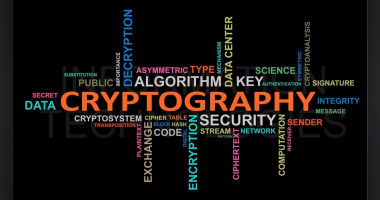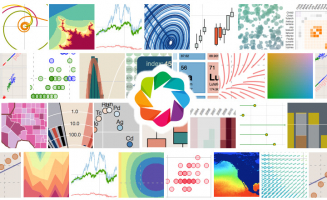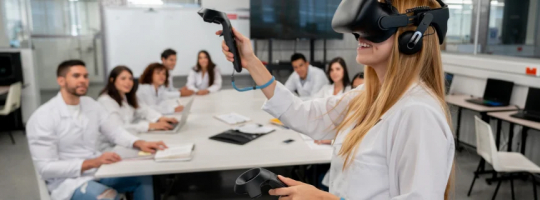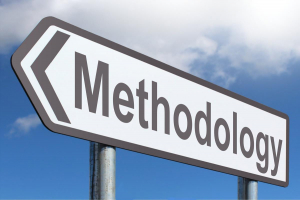Top 10 Best Online Humanitarian Courses
Humanitarianism is an active belief in the value of human life, whereby humans practice benevolent treatment and provide assistance to other humans to reduce ... read more...suffering and improve the conditions of humanity for moral, altruistic, and emotional reasons. A practitioner is known as a humanitarian. If you are interested in Humanitarianism and want to become a humanitarian, here are the best online humanitarian courses.
-
This course, Public Health in Humanitarian Crises 1, introduces students to public health approaches to problems faced by people affected by natural and conflict-related disasters. The course covers the various changes that occur in people's lives as a result of disasters, such as changes in disease patterns, access to health care, livelihoods, shelter, sanitary conditions, nutritional status, and so on. You'll look at what humanitarian interventions might entail if you want to lessen the impact of disasters. The content of the course is a combination of theoretical knowledge and numerous practical examples from recent disasters.
Public Health in Humanitarian Crises 1 is divided into ten modules with a total of 9-10 hours of delivered content and an additional 2-3 hours of self-work (quizzes and writing and evaluating a short peer-review assignment) as well as lively discussion forums. The course is structured in such a way that each module builds on the previous modules' lessons. The modules can be completed in any order, and some can be completed independently.
If you choose to enroll without a certificate, you will not be charged for this course. Enrolling without a certificate, also known as auditing, means you'll have access to all of the videos, quizzes, assignments, and discussions. The only difference is that you won't get a certificate when you're finished.
This course offers:
- Flexible deadlines: Reset deadlines based on your availability.
- Shareable certificate: Get a Certificate when you complete
- 100% online
- Intermediate level
- Approx. 8 hours to complete
- Subtitles: French, Portuguese (European), Russian, English, Spanish
Course ratings: 4.8/5
Enroll here: https://www.coursera.org/learn/humanitarian-public-health
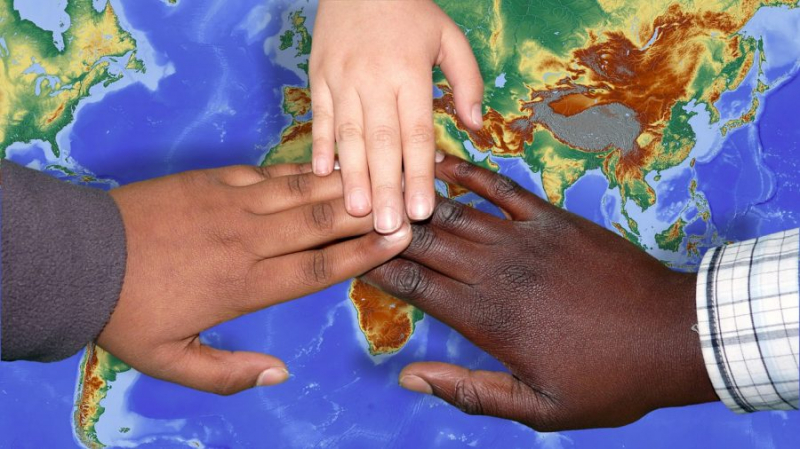
the-armijo-signal.com 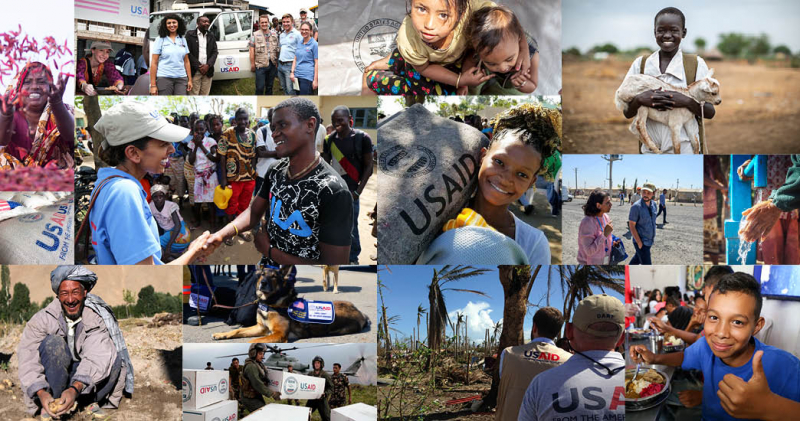
.usaid.gov -
In this course, Prof. Robert Heinsch, Dr. Giulia Pinzauti, and Dr. Emma Irving will provide you with a thorough understanding of the rules that govern armed conflict, with the goal of reducing human suffering on the battlefield. You'll learn why and how IHL works, as well as the various types of conflict. You'll quickly learn which rules apply to Syria's civil war, Ukraine's military intervention, and the occupation of the West Bank.
During International Humanitarian Law in Theory and Practice course, you will learn how hostilities should be waged, including which weapons combatants and other fighters are allowed to use. And, during military operations, who should never be a target? The course also examines the concept of protected persons, including how IHL protects the sick and injured, medical personnel, detainees, children, journalists, and others who are not - or are no longer - fighting. At the conclusion of this course, you will be introduced to the various implementation and enforcement mechanisms aimed at increasing IHL respect. Here, you are invited to consider whether IHL is effective!
You will benefit from a mix of theory and practice throughout this course, which is central to the Kalshoven-Gieskes Forum's vision and mandate. For example, you can take part in an ongoing case study in which drones fly over the fictitious country of Arfula and detainees are held in tiny cells. Alternatively, you can join discussions with distinguished speakers from the International Committee of the Red Cross and the US Naval War College about IHL success stories and the major IHL challenges humans face today! This course is completely free to join and take part in. It is possible to obtain a verified certificate for the course, but this is a paid option.
This course offers:
- Flexible deadlines: Reset deadlines based on your availability.
- Shareable certificate: Get a Certificate when you complete
- 100% online
Beginner level: Basic understanding of (international) law is helpful. - Approx. 19 hours to finish
- Subtitles: French, Portuguese (European), Russian, English, Spanish
Course ratings: 4.8/5
Enroll here: https://www.coursera.org/learn/international-humanitarian-law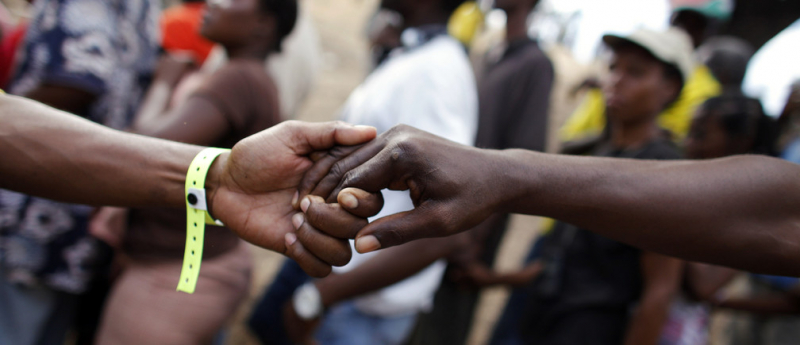
weforum.org 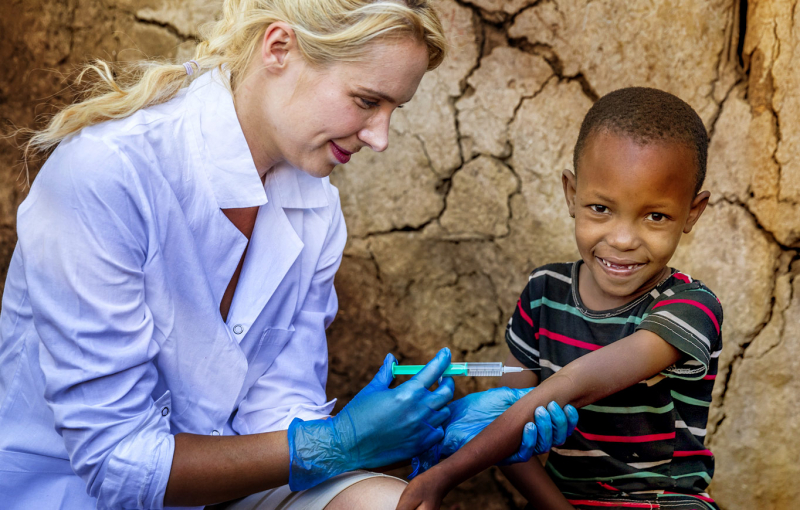
ups.com -
The Center for Humanitarian Emergencies is a collaboration between the Centers for Disease Control and Prevention's Emergency Response and Recovery Branch and the Rollins School of Public Health that promotes global collaboration, research, and evidence-based training to improve the lives and well-being of people affected by humanitarian crises.
This course, one of the best online humanitarian courses, covers the technical and management principles that underpin the development, implementation, and evaluation of health programs for acutely displaced people in developing countries. Refugees in camps are the focus. In the context of an international relief operation, the course covers assessment, nutrition, epidemiology of major health problems, surveillance, and program management.
Upon completion of this course, learners will be able to: describe a complex humanitarian crisis in terms of magnitude, person, time and place; calculate basic epidemiology measures; evaluate the strengths and limitations of epidemiological data within the context of; develop public health programs and strategies responsive to the diverse cultural values and traditions of the community being served,...
This course offers:
- Flexible deadlines: Reset deadlines based on your availability.
- Shareable certificate: Get a Certificate when you complete
- 100% online: Intermediate level
- Approx. 8 hours to complete
- Subtitles: French, Portuguese (European), Russian, English, Spanish
Course ratings: 4.8/5
Enroll here: https://www.coursera.org/learn/health-che
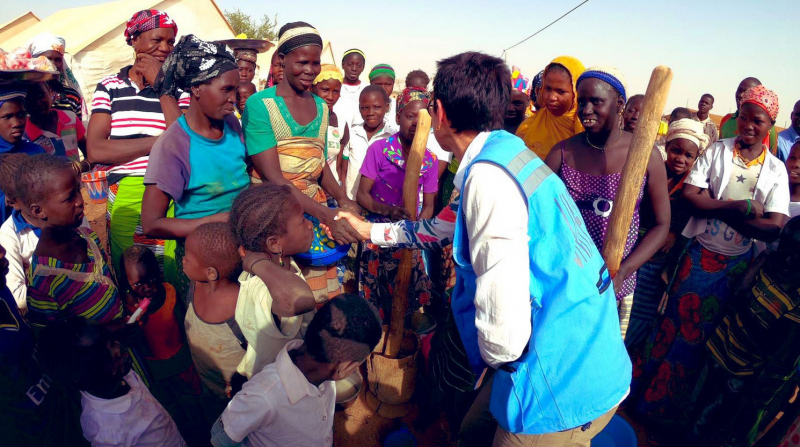
unocha.org 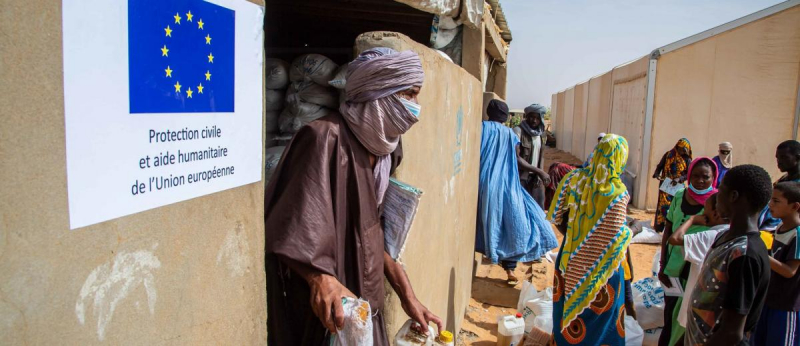
ec.europa.eu -
NCDs are the leading cause of death in nearly every region of the world, and they impose a significant financial and social burden on individuals, families, and societies. Humanitarian settings have a negative impact on disease prevalence and treatment options.
NCDs' importance in global health is recognized by their inclusion in the Sustainable Development Goals, which aim to reduce premature mortality from NCDs by a third by 2030. NCDs, on the other hand, have received little attention in humanitarian settings until recently, leaving some of the most vulnerable populations with unmet prevention, care, and treatment needs.
The course will teach students about the problems and dilemmas that arise in humanitarian settings when it comes to NCDs, as well as potential solutions. Why are non- communicable diseases (NCDs) a problem in humanitarian crises? Natural disasters and complex emergencies, such as armed conflict, wreak havoc on disease levels and the ability to prevent, treat, and care for people with NCDs.
People with NCDs frequently require ongoing care to prevent disease progression, and treatment disruptions due to natural disasters or emergencies pose a significant health risk. The challenge of disrupted care and treatment may be exacerbated in conflict situations and fragile contexts – an estimated 65 million people have been forcibly displaced by conflict, displacement lasts longer, and health systems and personnel are sometimes deliberately targeted.
This course offers:
- Flexible deadlines: Reset deadlines based on your availability.
- Shareable certificate: Get a Certificate when you complete
- 100% online
- Intermediate level
- Approx. 15 hours to complete
- Subtitles: English
Course ratings: 4.8/5
Enroll here: https://www.coursera.org/learn/non-communicable-diseases-in-humanitarian-settings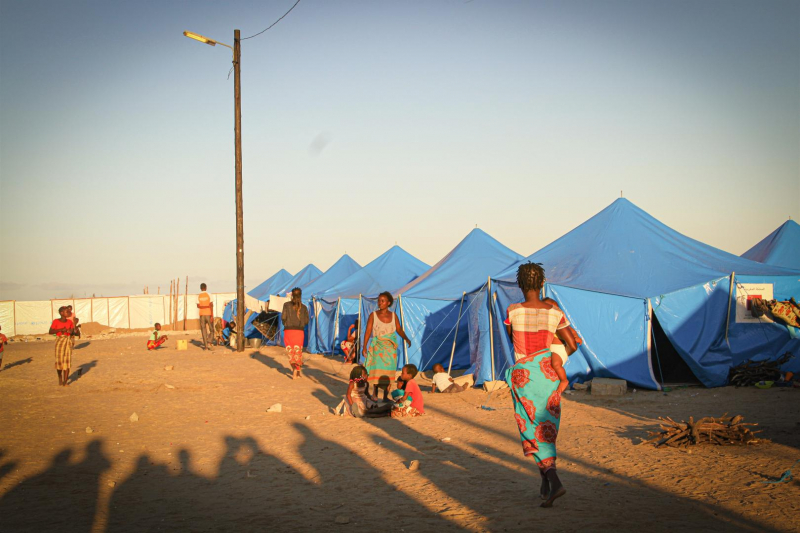
afro.who.int 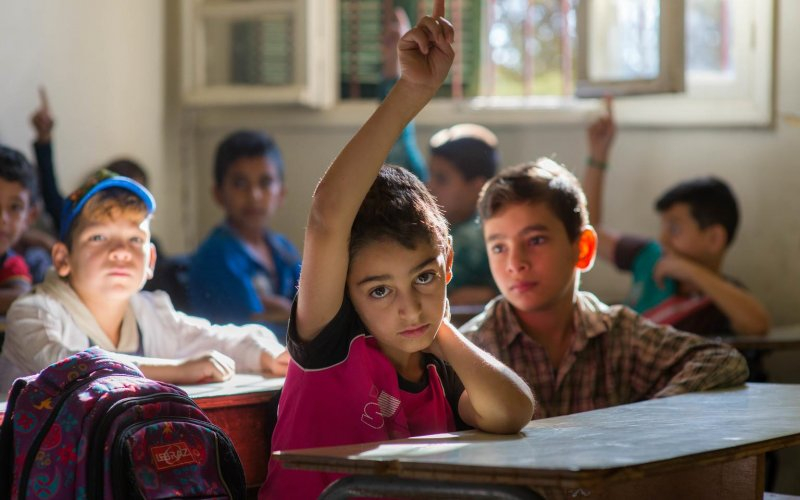
unicef-irc.org -
The course, one of the best online humanitarian courses, will provide you with a theoretical and practical overview of global health and humanitarianism. In many ways, these fields intersect and are intertwined. However, to explore subjects, the course has used three key themes: each key theme will be discussed over two-week blocks by specialist course lecturers, with three keynote speakers who are leading experts in the field providing unique video perspectives.
To get the best out of the course you are encouraged to try and set aside a few hours each week. This will give you more time to go over videos, written materials, and linked resources, as well as participate in discussions with other students. Based on the course content, the instructors have suggested a variety of readings, resources, and activities. Some will be necessary for your understanding of the MOOC themes as well as your assessment (if you have chosen to take part in assessment activity). Others will be for those of you who want to learn more about a specific topic or viewpoint, or conduct your own research into global health and humanitarianism in action.
During the course, the instructors will look at a range of different opinions and debates, linked to key themes and addressing ethics and moral issues. They hope you will be inspired and encouraged to explore and share your own perspectives, and those of others, throughout the course. Different viewpoints are essential to understanding global health and humanitarian practice.
This course offers:
- Flexible deadlines: Reset deadlines based on your availability.
- Shareable certificate: Get a Certificate when you complete
- 100% online
- Beginner level
- Approx. 12 hours to complete
- Subtitles: English
Course ratings: 4.7/5
Enroll here: https://www.coursera.org/learn/health-humanitarianism
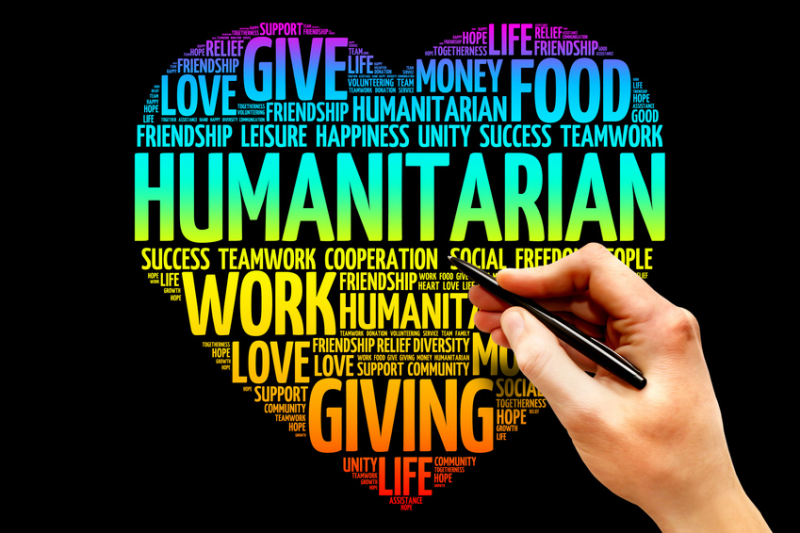
thecontentwrangler.com 
mastersdegree.net -
This course, Public Health in Humanitarian Crises 2, focuses on the public health concerns of people who have been affected by natural or conflict-related disasters. It discusses the many changes that occur in people's lives when they are uprooted by a disaster, as well as many important topics related to humanitarian crises, such as when there is an epidemic or a public health emergency; what is meant by the humanitarian-development nexus; disaster epidemiology and surveillance basics; humanitarian principles; and other important topics. Learners will consider what humanitarian interventions might entail if disasters are to be mitigated.
This course is a continuation of Public Health in Humanitarian Crises 1, which covered disease patterns, access to health care, livelihoods, shelter, sanitary conditions, nutritional status, and other topics. The content of the course is a mix of theoretical knowledge and numerous real-world examples from recent disasters. This course is unique in that it includes so many practical "real-life" examples and is taught by instructors and guest lecturers with a combined experience of more than 200 years in this field. The course is divided into ten modules with a total delivery time of 14-16 hours and an additional 2-3 hours of self-work.
If you choose to enroll without a certificate, you will not be charged for this course. Enrolling without a certificate, also known as auditing, means you'll have access to all of the videos and discussions. The only difference is that you won't be able to complete the quizzes and receive a certificate.
This course offers:
- Flexible deadlines: Reset deadlines based on your availability.
- Shareable certificate: Get a Certificate when you complete
- 100% online
- Beginner level
- Approx. 12 hours to complete
- Subtitles: French, Portuguese (European), Russian, English, Spanish
Course ratings: 4.7/5
Enroll here: https://www.coursera.org/learn/humanitarian-public-health-2
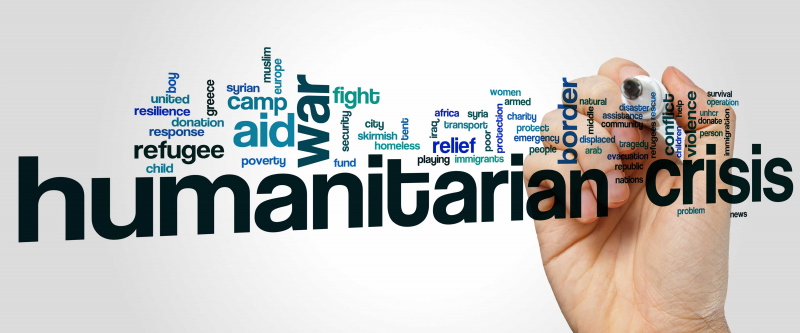
badrjafar.com 
cdc.org -
The world is facing unprecedented humanitarian needs. Today's humanitarian crises are more numerous, occur frequently in urban areas, last longer, and have a broader regional impact. They cause widespread human suffering, disrupt essential services such as water supply and sanitation, and jeopardize the health of a large population. Engineers and technical specialists in the fields of water, sanitation, energy, the environment, and other related fields are critical in meeting these challenges and growing demands. They are known as public health engineers in the humanitarian sector, and they are in high demand today! Why is public health engineering so important in humanitarian situations? And how do its associated activities take place in such a complex environment? This is what this Introduction to Public Health Engineering in Humanitarian Contexts is all about!
The EPFL, EAWAG-SANDEC and ICRC have decided to partner to guide you through this introduction to the fascinating field of public health engineering in humanitarian contexts.
This course offers:
- Flexible deadlines: Reset deadlines based on your availability.
- Shareable certificate: Get a Certificate when you complete
- 100% online
- Beginner level
- Approx. 12 hours to complete
- Subtitles: Arabic, French, Portuguese (European), Russian, English, Spanish
Course ratings: 4.8/5
Enroll here: https://www.coursera.org/learn/engineering-humanitarian

istockphoto.com 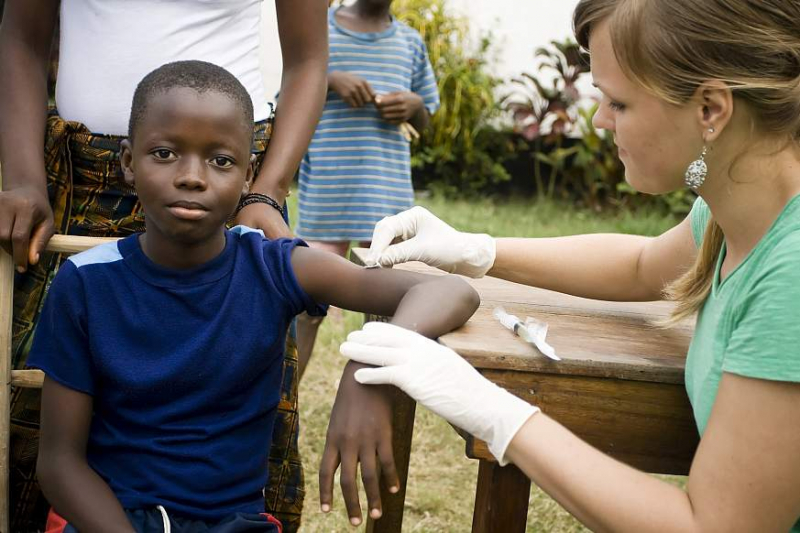
nih.gov -
Internal displacement is a major humanitarian and development challenge in today's world, and this course provides insight into the phenomenon. From a global perspective, you'll learn about who internally displaced persons (IDPs) are and where they come from, as well as the fundamentals of global protection for IDPs and potential "solutions" for those who have been internally displaced. Through participation in a variety of robust and challenging activities, materials, and online peer engagement, the course puts you at the center of the learning experience.
Internal Displacement, Conflict and Protection course was developed by a specialized consortium of IDP protection and research research networks and institutions. Learners who complete this course may apply to online Master's program in Refugee Protection and Forced Migration Studies to continue their education. For its innovative approach to online learning, this MA was awarded the prestigious Roger Mills Prize in 2019. That program builds on the MOOC experience by offering a fully accredited Master's degree in an online setting. This is definitely one of the best online humanitarian courses.
This course offers:
- Flexible deadlines: Reset deadlines based on your availability.
- Shareable certificate: Get a Certificate when you complete
- 100% online
- Beginner level
- Approx. 27 hours to complete
- Subtitles: English
Course ratings: 4.7/5
Enroll here: https://www.coursera.org/learn/internal-displacement-conflict-and-protection
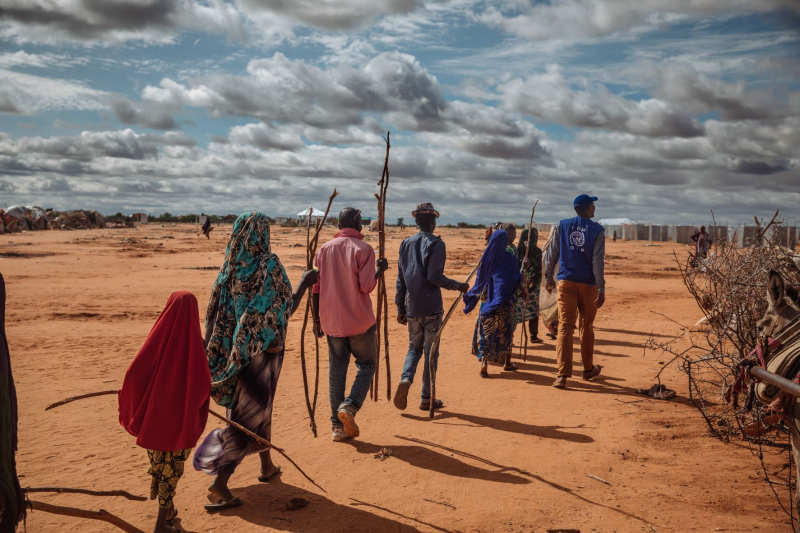
twitter.com 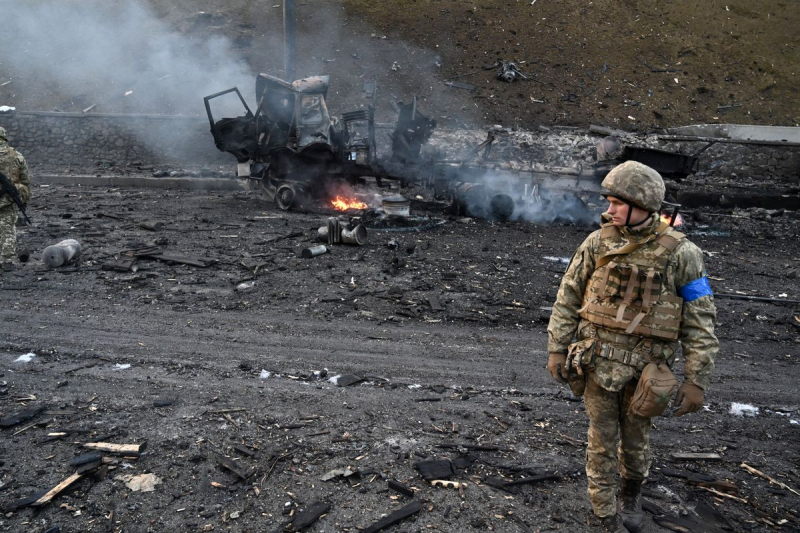
vox.com -
People are becoming increasingly socially and economically interdependent around the world. People's health on one side of the globe has an impact on people on the other. Global health, once merely an ethical consideration, now dominates global security discussions and policies. A diverse group of experts in this new field has come together to help you put your experiences as a new or experienced global health responder into context.
Week one of this course will provide an overview of global health concepts, as well as an examination of 21st-century trends such as urbanization, environmental stress, and resource scarcity. The knowledge will delve into global health security and the threats posed by climate change in week two. The global burden of disease, infectious disease, the rise of noncommunicable diseases, mental health, and access to care will all be covered in week three. You'll learn about the global health stakeholders in week four. You'll move on to complex humanitarian emergencies in week five, including forced migrations, wars, response standards, and the legal foundation for interventions. Finally, you will conclude your course in week six by learning how to be an effective participant—caring for yourself.
By the end of this course, you will have gained a better understanding of the machinations at work in organizations and governments around the world to improve health. You'll also learn how to stay safe and be a knowledgeable participant in the world of global health. You'll be ready to travel and apply your skills in chronic/emergent situations, assisting in the response to urgent needs while participating in global health activities all over the world.
This course offers:
- Flexible deadlines: Reset deadlines based on your availability.
- Shareable certificate: Get a Certificate when you complete
- 100% online
- Approx. 12 hours to complete
- Subtitles: English
Course ratings: 4.6/5
Enroll here: https://www.coursera.org/learn/ghresponder
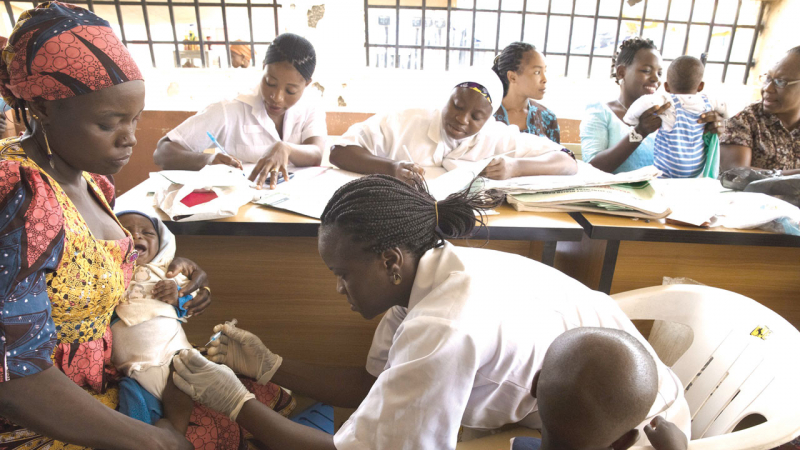
guardian.ng 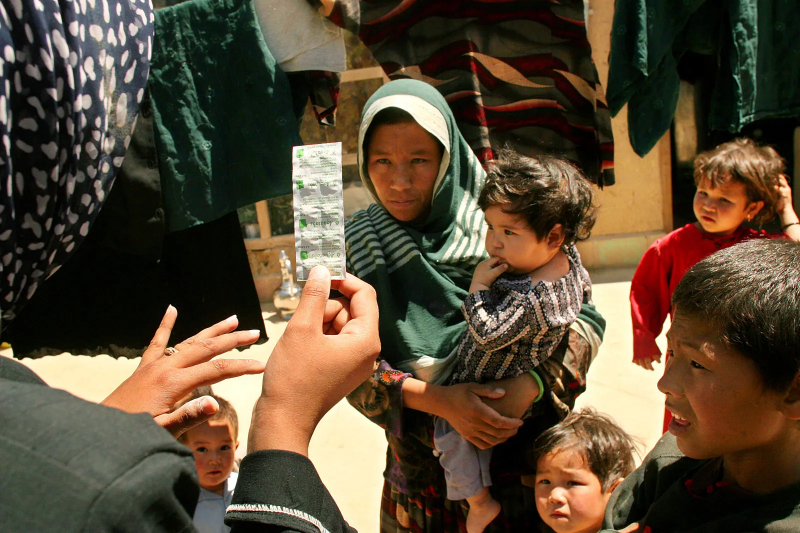
britannica.com -
Many countries around the world are plagued by violence that has a negative impact on health care. The 'Health Care in Danger' project aims to develop practical measures and recommendations that policymakers, humanitarian organizations, and health professionals can put into action on the ground. Given the diversity of actors and latitudes involved, it is critical to be able to provide everyone with the tools they need to make informed decisions, guide behavior in high-risk areas, and create and optimize dialogue between humanitarian and health professionals on the one hand, and relevant authorities or other armed actors on the other.
This course covers a wide range of topics, including ethics, rights and responsibilities of health-care and pre-hospital personnel, international law and humanitarian law, international human rights, caregivers and patient safety, and the role of communities in addressing and reducing violence against health-care workers.
This course offers:
- Flexible deadlines: Reset deadlines based on your availability.
- Shareable certificate: Get a Certificate when you complete
- 100% online
- Beginner level
- Approx. 10 p.m. to finish
- Subtitles: French, Portuguese (European), Russian, English, Spanish
Course ratings: 4.8/5
Enroll here: https://www.coursera.org/learn/gender-based-violence

responsiblebusiness.com 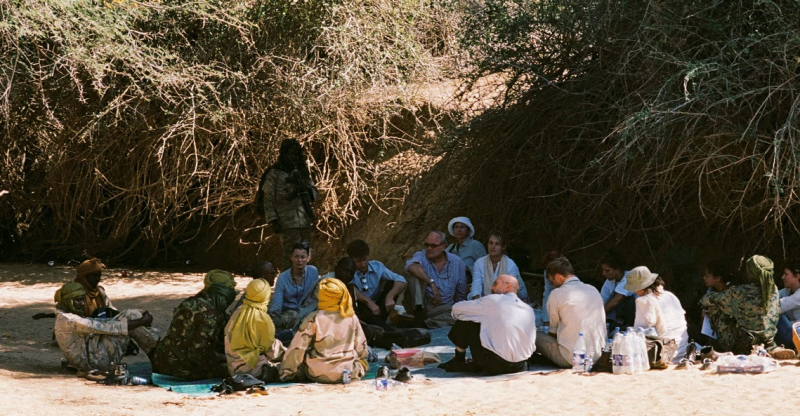
hdcentre.com















